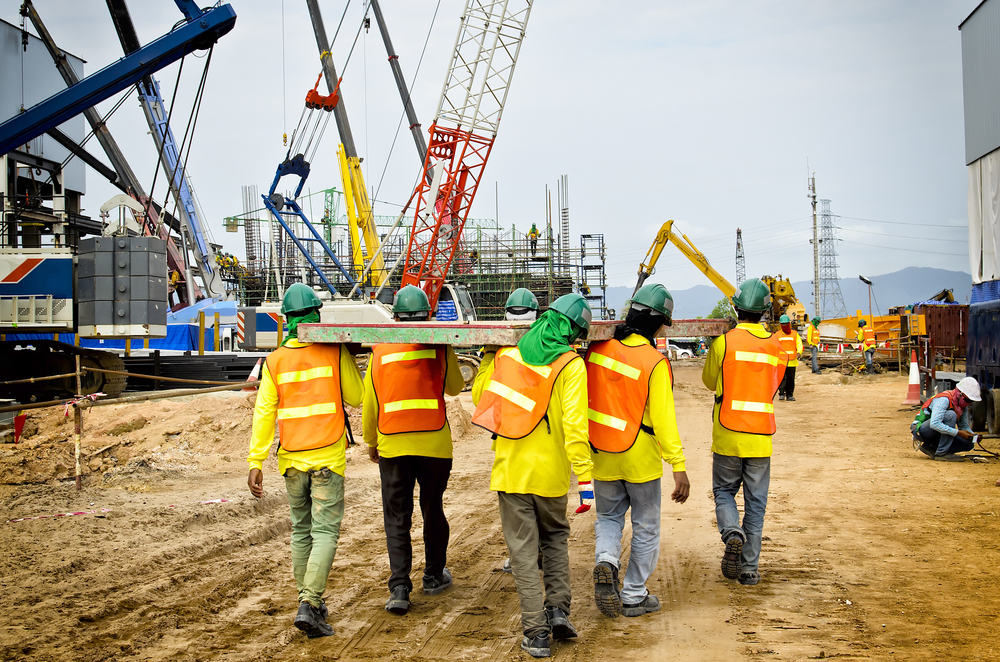
By Imraan Buccus
Last week, Matthew Horwill, the coastal manager for the Stefanutti Stocks construction company, survived a mafia-style hit in Pinetown. It is widely assumed that the hit on Horwill was taken out by the construction mafia.
Few people outside of Durban understand just how bad the situation is with politically connected forms of gangsterism. Most of the companies shaken down by these mafias do not go to the media or the police and either just walk away or pay up.
In the past, these mafias often overlapped with the RET faction of the ANC. Now, they often overlap with the MK Party. In most cases, they operate with impunity and while the police do not act to enforce the law.
This interweaving of crime and politics is extremely dangerous for obvious reasons. For many years, grassroots activists have been assassinated by the housing mafia, which has operated through the RET faction of the ANC, and now the construction mafia is also taking hits.
If the gangsterisation of politics and the politicisation of gangsterism are not dealt with, KwaZulu-Natal will, as others have argued, become much like Mexico or Colombia.
The national media do not seem to have grasped how serious the situation is, and national politics doesn’t seem to take it seriously either.
If MK had been able to form a government in KwaZulu-Natal, the province would have been in a serious crisis with a fully institutionalised synthesis of politics and gangsterism. This would have been disastrous for the economy, escalated middle-class flight from the province and put grassroots activists in even more danger than they already are.
It is outrageous that the new South African Guardian correspondent, Rachel Savage, refers to MK as ‘left’ when it is so clearly a collection of such violent and corrupt forces and people. It is also outrageous that the young online talk show hosts Sizwe Mpofu-Walsh, the son of Dali Mpofu, keep giving a platform to malign pro-Zuma actors without ever asking them critical questions. This is appallingly unethical pseudo-journalism.
As a man of the left, I am not a fan of either the DA or the IFP, but like most left intellectuals, I recognise that an MK government in KZN would be catastrophic for everyone, including the poor and the working class, and make democratic organising impossible. Indeed, democratic organising in Durban is already incredibly dangerous.
The coalition government in KZN can at least try to roll back the influence of some of the corrupt networks, rebuild some basic functionality of the state and keep space open for democratic organising.
Martin Meyer, the new MEC for public works in the province, has kicked off his term in office with a clear commitment to take on the construction mafia. All decent people, irrespective of our political leanings and affiliations, need to support Meyer.
We have to be clear, though, that he won’t succeed without the support of the police and that the police are also often integrated into the political mafias. Dealing with this requires very strong support from the national government.
If the criminalisation of politics and the politicisation of crime in KwaZulu-Natal is not dealt with there will not just be serious damage to the economy and social fabric in KwaZulu-Natal. We will also end up in a situation in which the national government loses its monopoly on the legitimate use of force. It is not too far-fetched to worry that this could end up in a sort of low-grade civil war. National government, and national intelligence and policing need to take this very seriously.
In the past, Cyril Ramaphosa has not intervened in the gangsterisation of politics in KwaZulu-Natal. This simply cannot continue in the seventh administration. It would be a gross dereliction of duty for his administration to allow the situation to worsen.
Of course, if the state does act against politically connected mafias, mafias which sometimes include politicians and police officers, there will be a huge pushback. That pushback is likely to include violence and a political challenge to Ramaphosa, to people like Martin Meyer and to the seventh administration in general.
The usual tacit of misrepresenting violently predatory forms of politics as being ‘radical economic transformation’ will be used. There will be a massive social media campaign, and ethically compromised public figures such as Andile Mngxitama will try to give legitimacy to a deeply reactionary, toxic and authoritarian form of politics.
For all these reasons, and more, the new provincial and national governments will have to have a real strength of purpose and communicate very clearly what they are doing and why. Their strongest asset in this battle will be the ordinary people who are disgusted by corruption and violence and want a peaceful and flourishing province.
Ultimately the national government will have to understand that KwaZulu-Natal needs to be brought back into norms and laws that govern the rest of the country or allowed to become a separate kind of space outside of those norms and laws. We should not forget that there are a lot of people in the province who are pushing for de facto or even de jure succession.
Ramaphosa’s strategy of not confronting the gangsterisation of politics in KwaZulu-Natal has not worked. It has just allowed gangsterisation to entrench itself, a process that reached its nadir when the former eThekwini mayor Zandile Gumede tried to formally entrench the mafias into the city’s procurement processes.
No country in which hits are taken out on business leaders and grassroots activists who are regularly assassinated can flourish. The only future under these circumstances is general decline, decay, impoverishment and middle-class and business flight. That same is true of a province.
The situation is very serious and we need a very serious response from Ramaphosa and the seventh administration.
Dr Buccus is the editor of Al-Qalam.











